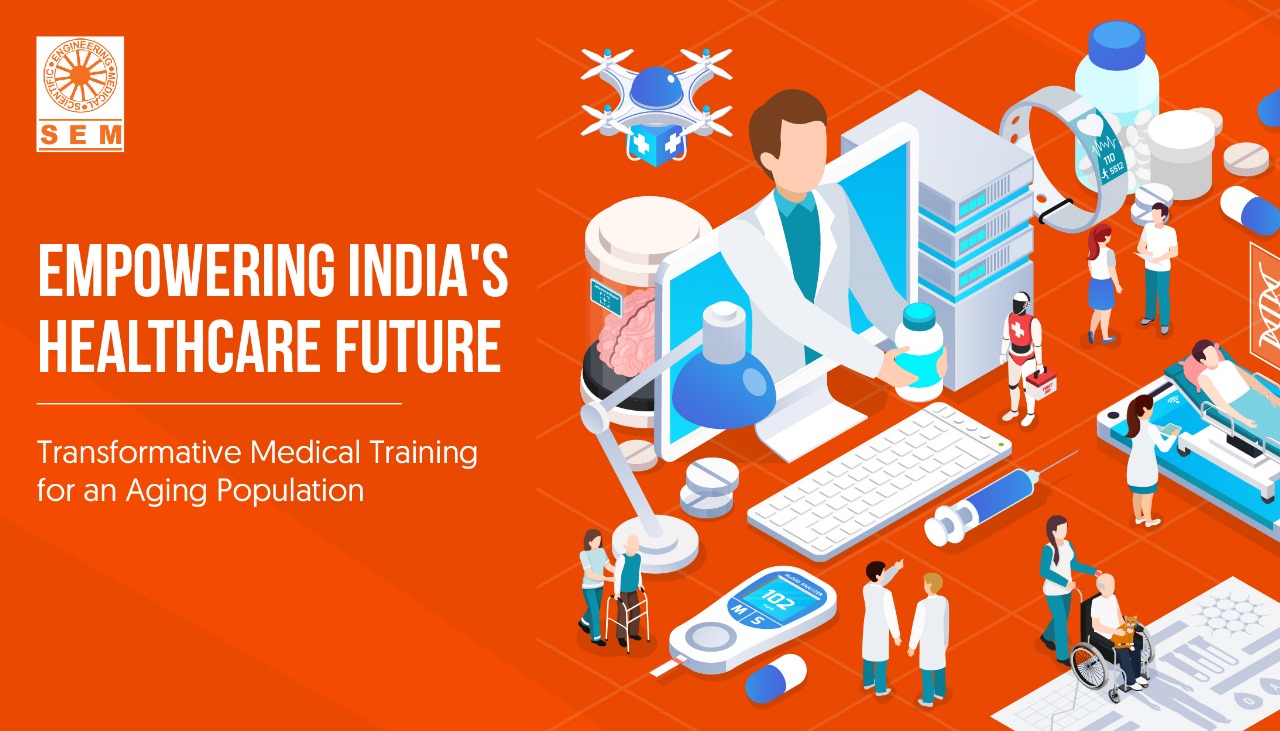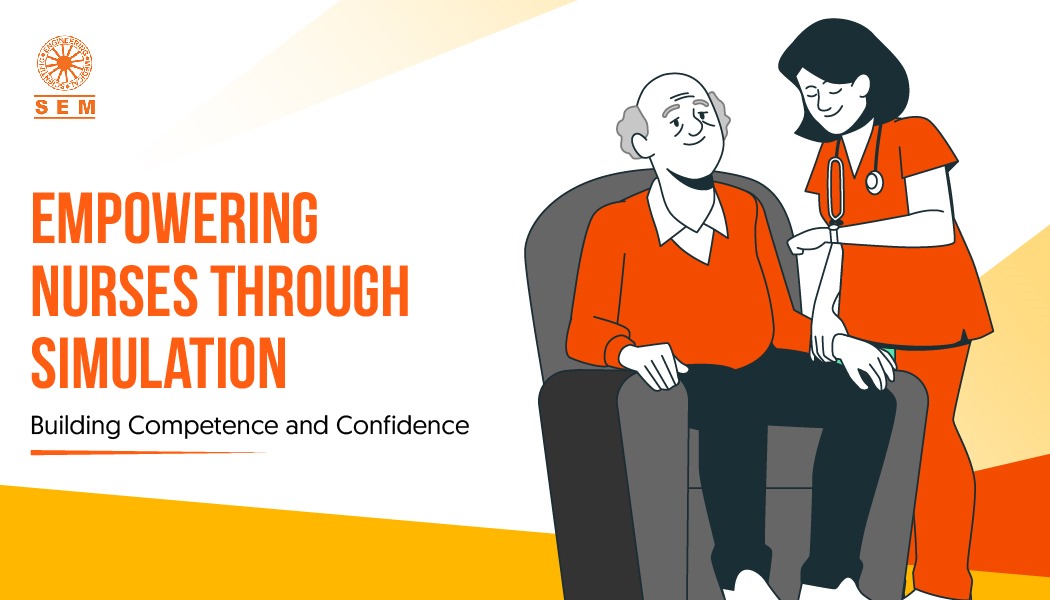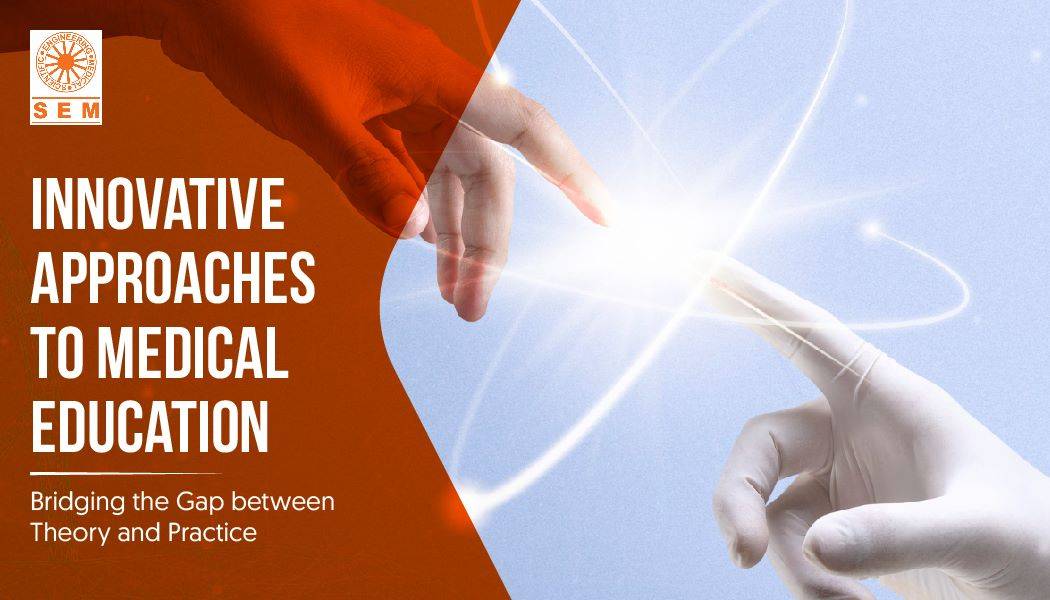Empowering India’s Healthcare Future
Empowering India’s Healthcare Future: Transformative Medical Training for an Aging Population
Just imagine, by the year 2050, one in five Indians will be over the age of 60, twice the proportion that was in 2022. India’s average life expectancy rose from 62.1 years in 2000 to 70.8 years in 2019, according to the World Health Organization. This demographic shift will need preparations on various fronts including the economy, and more urgently, in nursing and public healthcare systems.
Further, 80% of the elderly are in rural India, more than half are women and 30% live below the poverty line, national data show, making it imperative for primary care systems to be strengthened and attuned to changing needs.
The rapid aging of India’s population poses significant challenges to its healthcare infrastructure. As the country grapples with the implications of an increasingly elderly demographic, it becomes essential to prioritize the training and education of medical professionals equipped to handle the specific and evolving healthcare needs of the elderly. In response to this pressing need, we at SEM Trainers have been at the forefront of providing comprehensive medical training using advanced medical manikins, with a special focus on catering to the healthcare requirements of the aging population.
At SEM Trainers, we understand the crucial role that medical manikins play in clinical skill labs, facilitating hands-on learning experiences for healthcare professionals. Our medical manikins, Teri and Geri, have been meticulously designed to replicate the physiological characteristics and medical needs of senior citizens, enabling medical practitioners to gain practical exposure and develop essential skills for geriatric care. With their lifelike features and programmable functionalities, Teri and Geri serve as indispensable tools for medical personnel to practice various medical procedures and interventions that are specifically tailored for the elderly.
In a country where access to quality healthcare remains a persistent concern, empowering medical practitioners in medical colleges with the necessary expertise to address the unique healthcare needs of the elderly is paramount. Through our comprehensive training programs, which leverage the advanced capabilities of Teri and Geri, we strive to foster a generation of healthcare professionals who are not only well-versed in the intricacies of geriatric medicine but also equipped with the compassion and empathy required to provide holistic care to the elderly population.
The impact of effective medical training goes beyond the realm of skill development; it extends to the broader landscape of healthcare accessibility and inclusivity. By nurturing a skilled workforce proficient in geriatric care, let’s aim to bridge the existing gaps in the healthcare system and ensure that the elderly, particularly those from underprivileged backgrounds, receive the attention and treatment they rightfully deserve.
With our advanced male/female elderly patient care trainer for medical simulation – Advanced GERi™ Manikin, an evolution from the GERi/KERi manikins. With an even more lifelike appearance and weight distribution mimicking a real patient, it facilitates realistic lifting and carrying experiences. This comprehensive simulation encompasses various visual inspections and patient care simulations, including procedures for skin issues, wound dressing, personal hygiene, and a diverse array of medical interventions. It also incorporates an extensive array of features such as IV training arms, blood pressure training arms, and standard arms for comprehensive medical training.
And with our comprehensive male/female elderly patient care trainer designed for medical simulation- TERi™ Androgynous Geriatric Patient Simulator, building upon the success of our GERi/KERi manikins. This upgraded model boasts a remarkably lifelike appearance and weight distribution, closely mirroring the human anatomy for an authentic lifting and carrying experience. The simulation package includes features for auscultation and patient monitoring. It facilitates a range of activities such as passive range of motion exercises, cardiovascular support including CPR training, intravenous and injection sites for medical procedures, nasogastric tube procedures, enhanced aesthetics including realistic skin features, respiratory support for manual ventilation and oxygen administration, grooming and daily living assistance, and advanced skills such as urinary catheterization and pelvic examinations.
In essence, the evolution of medical manikins like Teri and Geri has revolutionized the way healthcare professionals approach geriatric care. By providing a platform for immersive and experiential learning, these state-of-the-art simulators have become instrumental in shaping a more proficient and empathetic cadre of medical practitioners capable of addressing the multifaceted healthcare challenges posed by an aging population. As we continue to witness the transformative impact of our training programs, we remain steadfast in our mission to catalyze positive change in the realm of geriatric healthcare and contribute to the well-being of the elderly in India and beyond.



